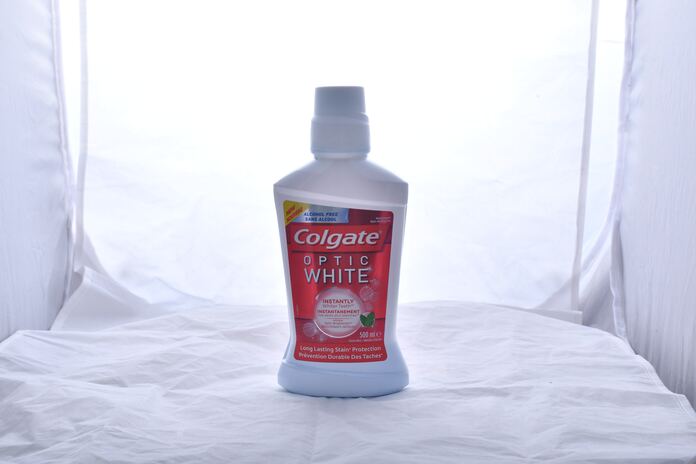In the midst of a roaring bull market, Colgate-Palmolive (NYSE:CL) might not be the first stock that comes to mind for high-flying, must-own assets. It’s often seen as a dependable, everyday essential, more of a background player in a portfolio than a headline act. Nevertheless, Colgate’s appeal lies in its reliability. Toothpaste is a product that everyone needs, and many turn to Colgate when shopping, making it a staple in both households and investment portfolios.
Adding to its case, Colgate offers a forward dividend yield of 2.60%. While this yield might not be groundbreaking, especially with a somewhat elevated payout ratio of 55.60%, it’s essential to consider the company’s impressive track record of 61 consecutive years of dividend increases. Such consistency is a valuable trait.
However, here lies the conundrum. In a bullish market, when investors often chase the latest tech IPO or groundbreaking innovations, excessive enthusiasm for a stock like CL can appear unusual. It suggests that investors might be growing cautious about the broader market, seeking refuge in established companies like Colgate as they anticipate potential economic challenges.
The recent surge in unusual options activity for CL adds to this narrative. Large investors seem to be hedging their bets, possibly preparing for increased market volatility or even a downturn. When too many investors turn to traditional safe havens in a seemingly booming market, it raises questions about whether insiders know something that the rest of us don’t.
Institutional Interest in CL Stock
Examining investor sentiment in a particular stock often involves looking at unusual options activity, and Colgate has recently seen some notable trades. On September 18, CL stock experienced a significant increase in trading volume, surging by a staggering 1,082.04% compared to its trailing one-month average.
What’s particularly intriguing is not just the volume itself, with 51,348 contracts traded against an open interest of 93,493, but the composition of this volume. Of these contracts, only 1,244 were calls, while the remaining 50,104 were puts. At first glance, this put/call volume ratio of 40.28 might seem bearish.
However, a closer look reveals a different story. Options can be both bought and sold, and the distinction between these actions can be significant. Evidence suggests institutional involvement, as all significant transactions involved sold puts at a consistent strike price of $60, with various expiration dates.
One standout transaction involved the June 21, 2024, $60 Put, with a volume of 27,563 contracts, far surpassing the open interest of just 411. Another interesting development was with the May 17, 2024, $60 Put, where volume reached 21,700 contracts, with zero open interest, indicating new contracts.
Notably, options traders often seek high implied volatility (IV) to sell options, as it results in higher premiums. However, the IV for these specific options was relatively low, at around 21.20% for the May 2024 contract and 21.48% for the June 2024 contract. This suggests a unique strategy.
Institutional traders may anticipate a rise in CL stock. If the stock’s value increases, the puts they’ve sold could decrease in value, offering an opportunity to buy them back at a profit. Essentially, this strategy allows them to close their position before a significant IV increase.
In the complex world of options trading, one thing is clear: significant players are making moves on CL, and the broader market should take note.
Implications for the Broader Economy
In the stock market, a single stock’s upward movement can sometimes provide more insight into the overall economic landscape than numerous economic indicators. Colgate-Palmolive is now in the spotlight, with increasing optimism among institutional investors. However, what does this concentrated confidence suggest for the larger economic picture?
Analyzing the rise in CL stock, we can infer that seasoned investors may be seeking shelter. Colgate, with its extensive range of everyday essential products, serves as an attractive safe haven during uncertain economic times. But such pronounced bullishness in a stock like CL could also be a warning sign.
Several concerning economic indicators come to mind. U.S. credit card debt has surpassed $1 trillion, which, on the surface, may indicate consumer confidence as people spend with the belief they can repay. However, it’s a delicate balance, and a significant economic shock could push many households to the brink, causing ripple effects throughout the economy.
Additionally, ongoing layoffs contribute to job security concerns, prompting consumers to prioritize essential goods over luxuries. While this shift could benefit consumer staples companies like Colgate, it also signals potential stagnation in sectors relying on discretionary spending.
In summary, the narrative surrounding CL stock isn’t as straightforward as a strong buy recommendation. It’s more nuanced. While institutions may be placing significant bets on Colgate, their actions could serve as cautionary flags for the broader economy’s health. In their preference for this consumer stalwart, we might detect an undercurrent of concern regarding the economic path ahead.
Featured Image: Unsplash @ Atikah Akhtar















